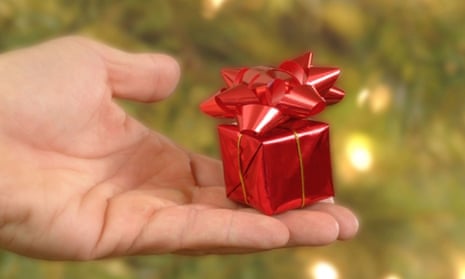“Do you need this television, Miss?”, asks the woman in the middle of a crowd of shoppers fighting over products for a bargain. “I have three others at home, but it is cheap and everybody is buying…”
This is a snapshot of the Black Friday furore, a shopping tradition that takes place after Thanksgiving in the US, but which is gradually becoming a global phenomenon, providing the commercial kick-start to the festive season. In the US, Black Friday is about deals, but in my native Brazil it has been re-named ‘black fraud’, with stores accused of hiking prices only to then slash them. In São Paulo this year, there were hundreds of complaints to local consumer protection officials about promotions that simply didn’t exist.
The period from Black Friday to Christmas is the time of year when most of the western world treads the fine line between needs and wants, consumption and consumerism. For many, prosperity is defined as ‘having more’, which drives consumption and demands natural resources at a level never seen before. Total global resource use increased by 45% from 1980 to 2005, and per capita levels of resource consumption are at their highest level in history.
The result? Growing demand is outstripping raw material supply. It takes the planet 18 months to replenish the natural resources we consume in a year. Forecasts suggest that, based on current consumption levels and future population growth, we will need the equivalent of two earths to support us by 2030. This trend is predicted to worsen as income levels rise across the developing world and a new consumerist middle class emerges. The International Labour Organisation forecasts that the middle class in emerging economies will grow by 309m by 2017.
For some, the question is how we prevent the global north exporting its disease of affluence and associated discontents to the rest of the world. US writer and environmental activist Wendell Berry has said: “We do not understand the earth in terms either of what it offers us or of what it requires of us, and I think it is the rule that people inevitably destroy what they do not understand.”
Turning consumption into the pantomime villain may not be the best way forward, however. According to communications agency Futerra, using guilt or encouraging sacrifice does not change behaviour. The issue is not to discontinue consumption, but to promote a shift from a society of overconsumption of products and services to one based on wellbeing, belonging and sustainable living.
Closer to home, I’ve seen resilient models of celebrating the festive season at work – models which embrace the skills of local growers, producers and small-scale artisans. At the heart of the model lies a celebration of cultural, spiritual and ecological diversity, and the impulse to re-establish local economies in which local needs are met from local sources.
“Making money at Christmas is as questionable as making money with art,” says economist Robert McDowell, the mastermind behind Edinburgh arts hub Summerhall. This year, Summerhall Christmas Market attracted hundreds of people who took great pleasure in connecting with local producers, with more than 50 stalls showcasing the unique aesthetic values of the crafts and strengthening the sense of local identity of the craftspeople.
Understanding how something is made, where the materials came from and how the skills were developed is crucial to modern life. One of the young weavers at the market said: “Crafts make me feel rooted in history and give me a sense of belonging as I know these skills have been passed through generations.”
I am encouraged by the idea of turning Christmas shopping into an experience in which we savour the achievement of such artisans and reignite our appreciation of local products that are handmade, slow-made and well-made. Perhaps we might yet turn the page on consumerism and learn the lesson of Benjamin Hoff’s The Tao of Pooh, where “the Christmas presents once opened are Not So Much Fun as they were while we were in the process of examining, lifting, shaking, thinking about and opening them.”
Read more stories like this:
- Buying secondhand: an alternative to rampant consumerism of Black Friday
- What a circular economy looks like inside a Christmas stocking
- Brought to you by Unilever: Fighting food waste and hunger across Europe
The sustainable living hub is funded by Unilever. All content is editorially independent except for pieces labelled brought to you by. Find out more here.
Join the community of sustainability professionals and experts. Become a GSB member to get more stories like this direct to your inbox

Comments (…)
Sign in or create your Guardian account to join the discussion